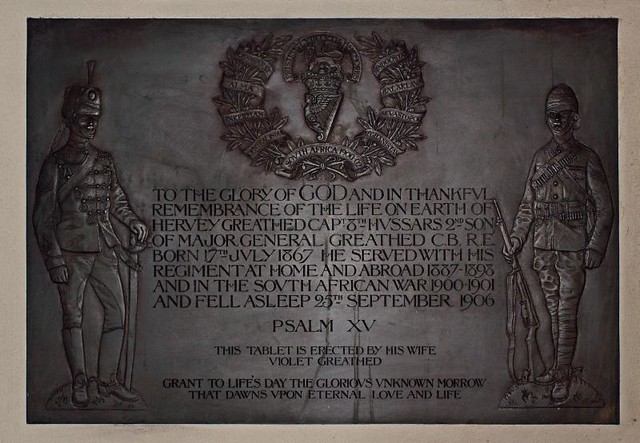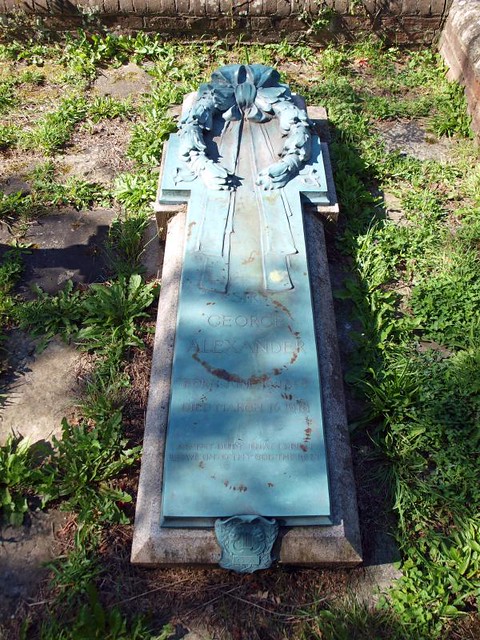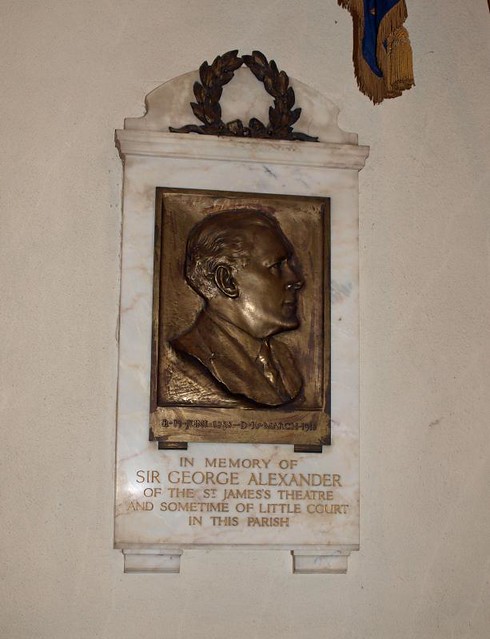CHRIST CHURCH, 1870, by Street. Flint, with low shingled W spire. The only other feature of interest is the triple traceried opening from the chancel into the S chapel.
Chorley Wood. It is the nearest Hertfordshire village to the Chalfont country, whose loveliness it shares. Here is a beautiful and extensive gorse common, and there are wide views over the valley of the Chess. In this village William Penn married the beautiful Gulielma Springett, whose charming personality lives in Thomas Ellwood’s story of the early Quakers and their sufferings under the tyranny of the Restoration. The marriage took place in 1672 at King John’s Farm, a brick-and-timber house of exquisite charm, still keeping the room, with its exposed beams, in which the event took place. In it hangs a copy of the portrait of Penn in armour, showing him as a soldier before he was a Quaker.
The church, with its shingled spire and shingled gables, is by the great common, with cedars in the churchyard. In a niche in the sanctuary is a statue of St John holding a chalice, in memory of John Gilliat, who died in 1912. A flat wreath of bronze marks the grave of Sir George Alexander, the famous actor who was laid to rest here in 1918. There are three bronze fawns beside it.
There is a bronze portrait of Sir George Alexander on the wall, the work of Mr G. L. Hartwell. Sir George was born at Reading in the middle of last century, and as a manufacturer’s son had a short business career before he turned actor. Then he joined Sir Henry Irving’s company and played under that great man’s wing for eight years. For most of the rest of his life he was actor-manager at St James’s theatre, which must always be associated with his memory. He was admirable in comedy parts and most successful as a producer, a man of sterling character and great personal charm who added lustre to the English stage.
The church, with its shingled spire and shingled gables, is by the great common, with cedars in the churchyard. In a niche in the sanctuary is a statue of St John holding a chalice, in memory of John Gilliat, who died in 1912. A flat wreath of bronze marks the grave of Sir George Alexander, the famous actor who was laid to rest here in 1918. There are three bronze fawns beside it.
There is a bronze portrait of Sir George Alexander on the wall, the work of Mr G. L. Hartwell. Sir George was born at Reading in the middle of last century, and as a manufacturer’s son had a short business career before he turned actor. Then he joined Sir Henry Irving’s company and played under that great man’s wing for eight years. For most of the rest of his life he was actor-manager at St James’s theatre, which must always be associated with his memory. He was admirable in comedy parts and most successful as a producer, a man of sterling character and great personal charm who added lustre to the English stage.



No comments:
Post a Comment